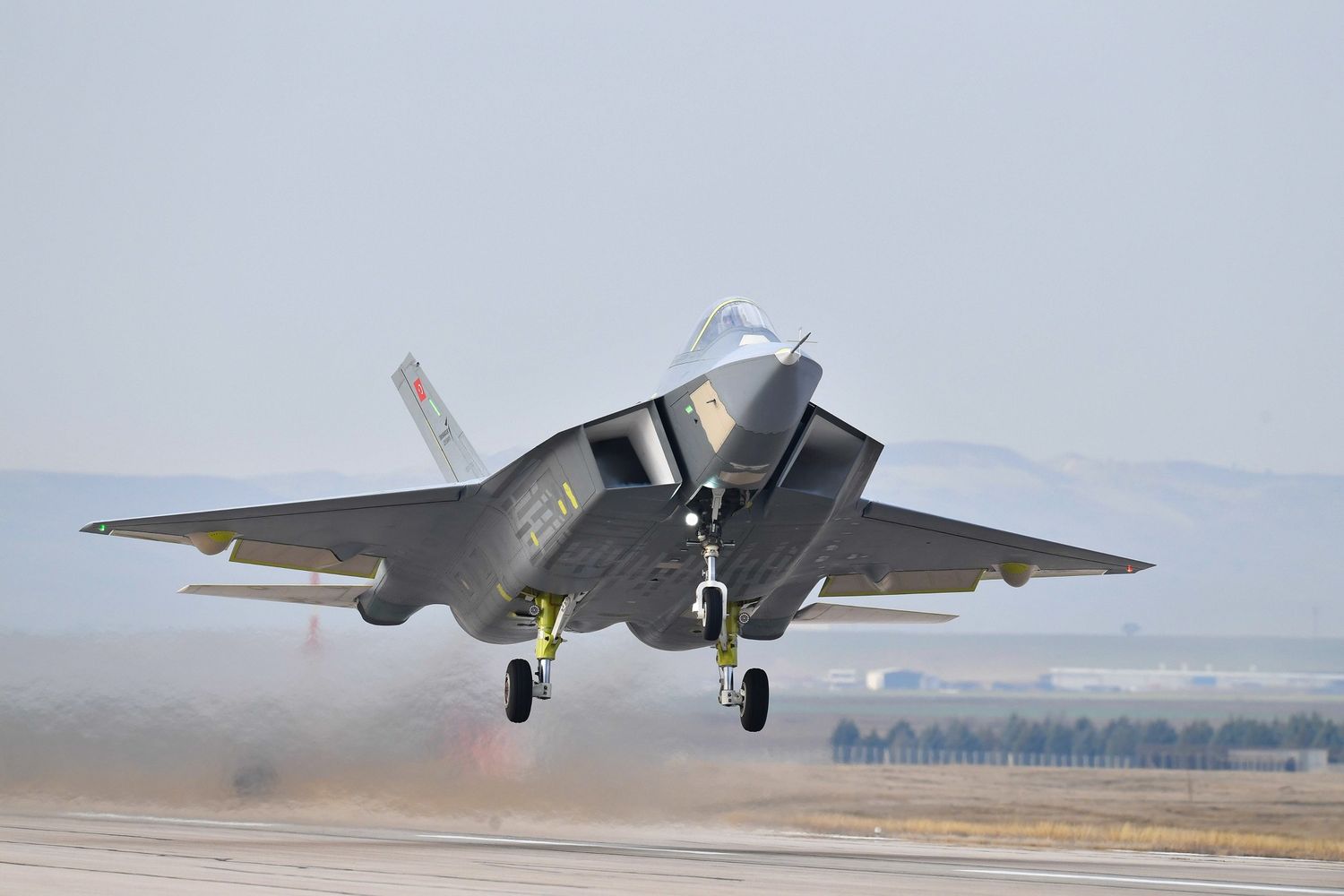KAAN, Turkey’s fifth-generation fighter, made its maiden flight
The first prototype of the Turkish 5th generation fighter, named KAAN, successfully completed its maiden flight, which lasted 13 minutes, reaching an altitude of 8000 feet and a speed of 230 knots.
Under the MMU program (Turkish acronym for National Combat Aircraft and formerly known as TF-X), Turkey embarked on a program to develop a 5th generation fighter, intended to replace the Turkish Air Force’s (Türk Hava Kuvvetleri) F-16s from 2030/35.
Parlayan yıldızı Anadolu’nun
Çağlayan sel gibi şanlı Ulus’un
Türkiye yüzyılı titretiyor dünyayı
Sarsılmaz bir inançla kalpte tutkusu. ????????Millî Muharip Uçağımız #KAAN, ilk uçuşunu başarıyla gerçekleştirerek asil milletimizi sevince boğdu. Cumhurbaşkanımız Sn. Recep Tayyip… pic.twitter.com/Ea3joBjHaW
— T.C. Millî Savunma Bakanlığı (@tcsavunma) February 21, 2024
Designed with an emphasis on air superiority missions, KAAN will be a multi-role stealth fighter aircraft that can also perform air-to-surface missions.
Developed by Turkish Aerospace (TUSAS), Turkey’s leading aerospace company, KAAN represents Turkey’s greatest technological achievement to date. Test taxiing of the prototype that flew today began on March 17, 2023.
Production of 3 MMU Block 0 prototypes is scheduled to be completed by the end of 2026. From 2029, it is intended to start production activities of the MMU Block I configuration and deliver the first 10 Block I units to the Turkish Air Force.

As in the case of the South Korean KF-21 Boramae program, the first block aircrafts would belong to the 4.5 generation, and as relevant technologies are developed, such as new engines (prototypes and first series aircraft will use General Electrics’ GE F110, produced in Turkey under license), the Turkish fighter should be able to fit into the 5th generation aircraft, such as the F-35, starting from block 1.
TUSAS expects its fighter to attract a great deal of interest in international markets, as they are confident that it will possess superior characteristics over competing models, and once the domestically designed engine goes into production, it will be free from US ITAR regulations, regarding the export of defense products. In fact, Pakistan has already shown great interest in the KAAN and aspires to become a partner in the project.


Comentarios
Para comentar, debés estar registrado
Por favor, iniciá sesión